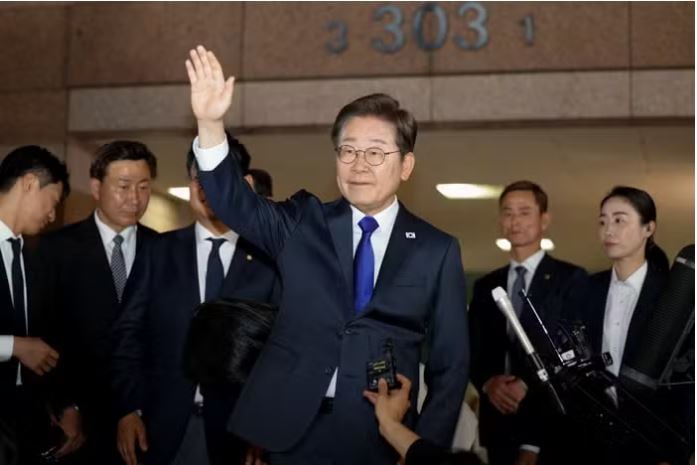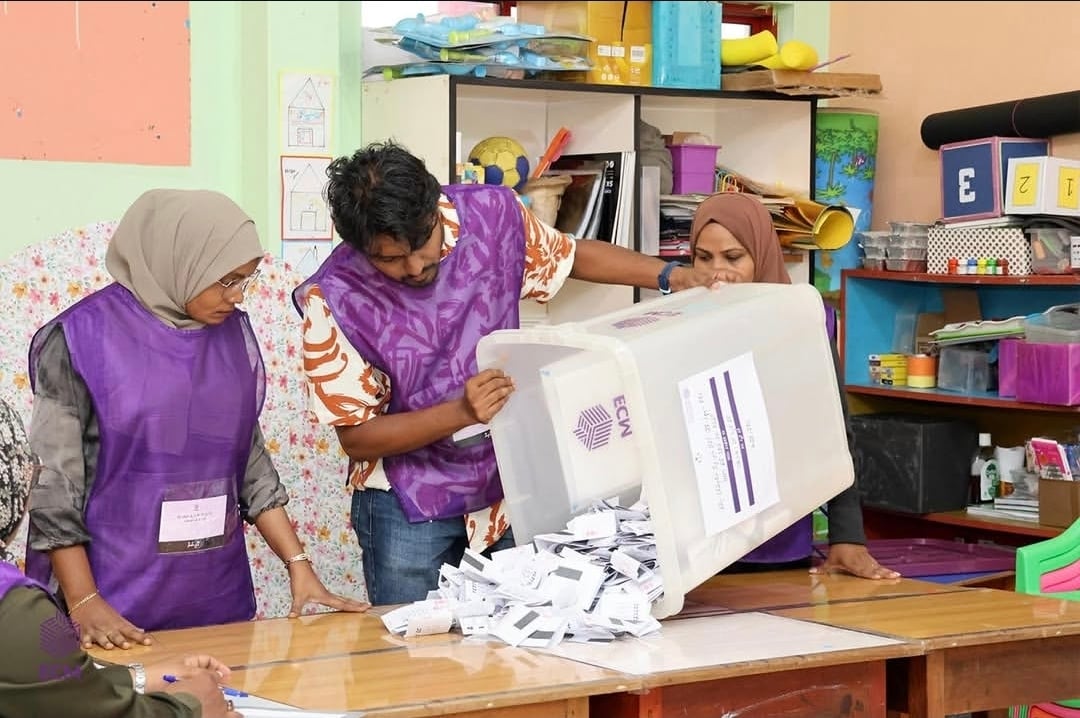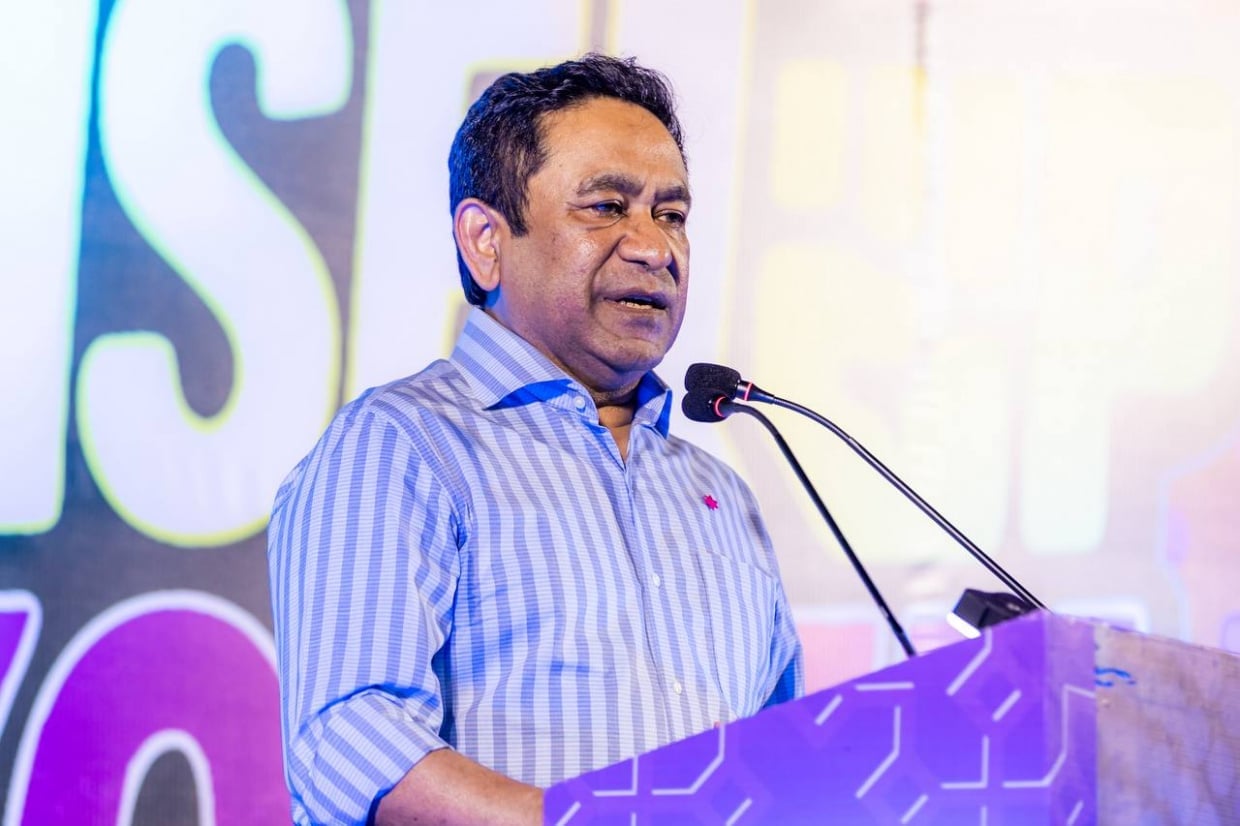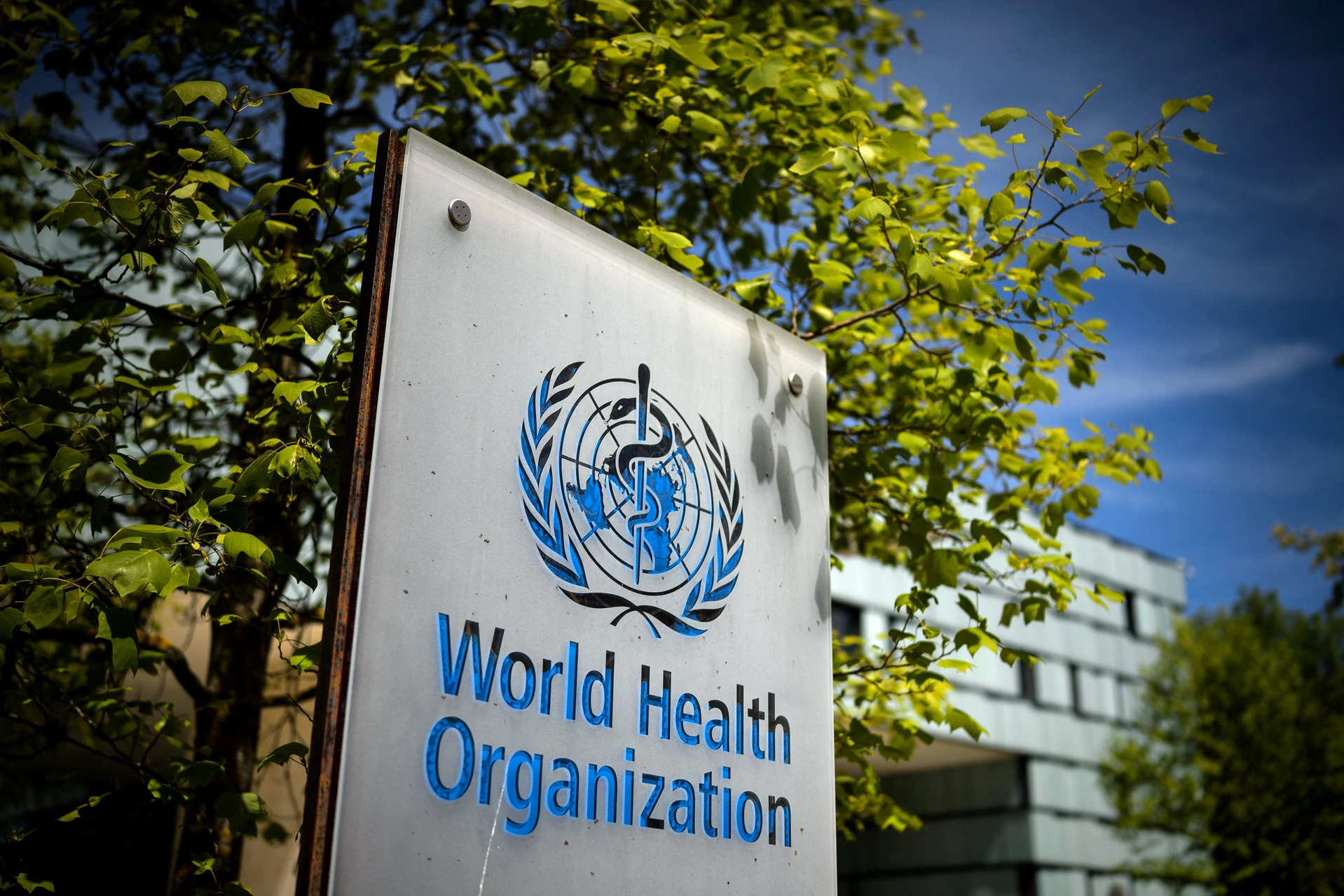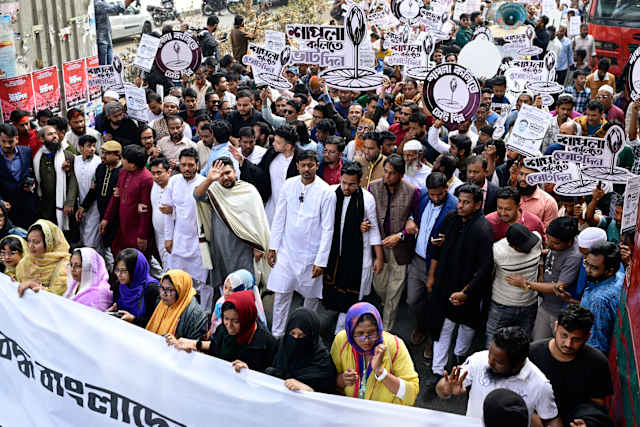Opposition leader Lee Jae-myung has claimed a historic victory in South Korea’s presidential election, marking a dramatic political comeback after his narrow loss three years ago.
The snap election was called after former President Yoon Suk Yeol was impeached and removed from office over a failed martial law bid, triggering mass protests and political instability. Lee’s victory is seen as a rejection of the ruling People Power Party (PPP) and a call to restore democratic order.
Lee’s rival, PPP candidate Kim Moon-soo, conceded early Wednesday. “Recovering South Korea’s democracy” would be his first priority, Lee said at his campaign headquarters.
Lee now faces significant domestic and international challenges — from uniting a deeply polarised nation to negotiating a new trade deal with U.S. President Donald Trump amid rising tariffs.
Despite his win, Lee is due to face trial over alleged election law violations. While South Korean law shields sitting presidents from most criminal prosecution, a conviction could further complicate his tenure.
With record voter turnout at 79.4%, analysts say the election was less about strong support for Lee and more about voters demanding accountability and stability.
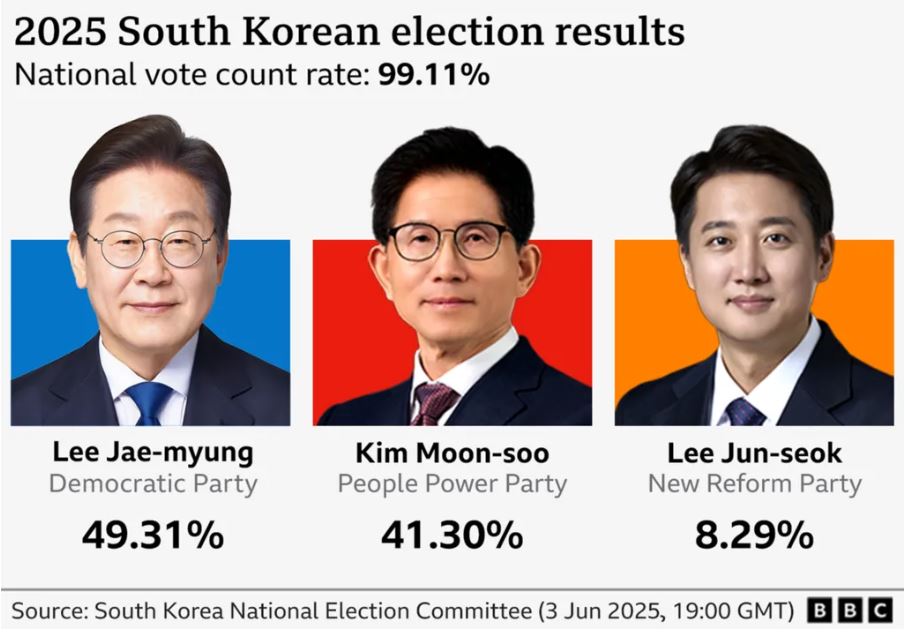
The snap election was called after former President Yoon Suk Yeol was impeached and removed from office over a failed martial law bid, triggering mass protests and political instability. Lee’s victory is seen as a rejection of the ruling People Power Party (PPP) and a call to restore democratic order.
Lee’s rival, PPP candidate Kim Moon-soo, conceded early Wednesday. “Recovering South Korea’s democracy” would be his first priority, Lee said at his campaign headquarters.
Lee now faces significant domestic and international challenges — from uniting a deeply polarised nation to negotiating a new trade deal with U.S. President Donald Trump amid rising tariffs.
Despite his win, Lee is due to face trial over alleged election law violations. While South Korean law shields sitting presidents from most criminal prosecution, a conviction could further complicate his tenure.
With record voter turnout at 79.4%, analysts say the election was less about strong support for Lee and more about voters demanding accountability and stability.




